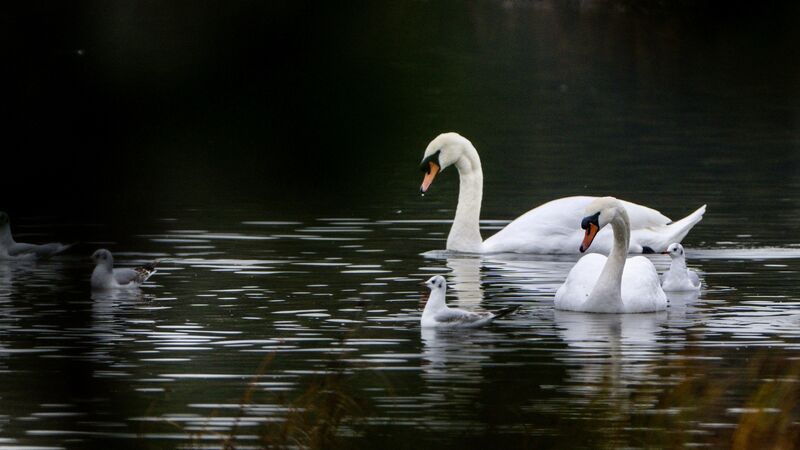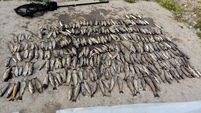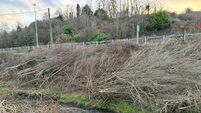Dead swans and duck removed from Cork’s Lough amid renewed flu concerns

It follows a confirmed case of bird flu at the Lough earlier in September. Picture: Chani Anderson.
Two dead swans and a dead duck were removed from The Lough in Cork City at the weekend as a highly infectious bird flu continues to spread.
The birds’ remains are to be taken to a laboratory for testing to confirm whether avian flu is present.
These test results will take at least 10 days to be formally confirmed, a Cork City Council spokesperson said.
If positive, it will be the second confirmed outbreak of bird flu at The Lough, following another case in September.
Biosecurity measures introduced at the amenity will remain in place. A temporary ban on fishing will also remain in effect, and the bird feeder will continue to be out of action.
People visiting the sanctuary are urged to avoid contact with sick or dead wild birds.
An outbreak of avian flu has also closed the popular Fota Wildlife Park for more than a month.
The park confirmed 12 cases of bird flu and had to humanely euthanise 73 birds as a result of the outbreak.
The highly pathogenic avian influenza (HPAI) H5N1 virus has also struck three poultry flocks, as farmers prepare for the commercially crucial Christmas market.
Last week, an outbreak was announced in a commercial turkey flock near Clontibret, Co Monaghan.
Restriction zones have been established around the affected holding, with a 3km protection zone and a 10km surveillance zone in line with national and EU legislation.
The first avian flu outbreak occurred in a small backyard flock in Co Donegal, which was followed by the outbreak in Fota Wildlife Park in Co Cork in the Greylag goose population.
All three outbreaks of bird flu that were confirmed in November occurred in separate turkey flocks in Co Carlow, Co Meath, and Co Monaghan.
The main clinical signs of the virus in birds are depression or lethargy, loss of appetite and excessive thirst, swollen head, blue discolouration of areas of exposed skin, respiratory distress, diarrhoea, reduced or no eggs laid, and sudden death.
The public is advised not to approach sick, dead, or dying wild birds, not to touch wild bird feathers or droppings, and avoid surfaces that may be contaminated with them.
Ireland has not seen a bird flu outbreak on commercial poultry farms since 2023.
Flocks in the North have also been impacted. Entire poultry flocks have been culled on farms in the UK due to the virus.
And this strain of bird flu may be the most infectious yet, the UK government's former top expert in avian virology told the BBC.
Farmers should be "prepared for the worst" Professor Ian Brown, formerly director of science at the Animal and Plant Health Agency (APHA) now with the Pirbright Institute, warned.
The virus has also been circulating in wild birds across Ireland and the risk of occurrence of further outbreaks of the disease into poultry flocks in Ireland is high, the Department of Agriculture has said.
Flock keepers have been ordered to confine all poultry and captive birds in a secure building from November 10 in Ireland.
All flock owners are reminded to continue implementing the highest levels of biosecurity.














